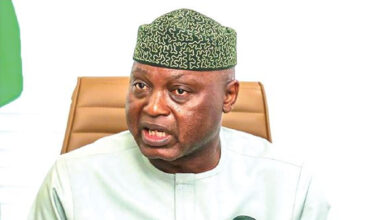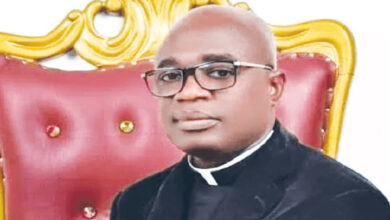National Assembly To Amend 2023 Electricity Act, Strengthen NEMSA’s Role

The National Assembly has revealed plans to amend the 2023 Electricity Act to formally designate the Nigerian Electricity Management Services Agency (NEMSA) as the sole regulatory body responsible for enforcing technical standards and safety regulations in Nigeria’s power sector.
This development was announced by Senator Eyinnaya Abaribe, Chairman of the Senate Committee on Power, during the fourth edition of the Stakeholders Roundtable for the Enforcement of Technical Standards, Regulations, and Mandates, held in Abuja on Tuesday.
Addressing Ambiguities in the 2023 Electricity Act
The 2023 Electricity Act, signed into law by President Bola Tinubu last year, introduced sweeping reforms, including the de-monopolization of electricity generation, transmission, and distribution. It allowed states and private entities to generate and distribute power and issue licenses for mini-grids.
However, Abaribe noted that some states had overstepped their jurisdiction by attempting to enforce technical and safety standards, creating conflicts with NEMSA’s mandate. He stressed the need to amend the law to explicitly prevent states from setting or enforcing such standards.
“There is nowhere in that law that gives states the right to enforce standards of our electrical equipment and supplies,” Abaribe said. “We need to make it far more explicit that, just like the Nigerian Electricity Regulatory Commission (NERC), NEMSA should be the sole body responsible for enforcing technical standards. Nigeria must have one standard; we cannot afford multiple standards.”
Challenges in Decentralized Regulation
Abaribe highlighted the complexities introduced by the decentralization of electricity regulatory responsibilities, especially following the Fifth Alteration to the Constitution, which empowered states to generate and distribute electricity. He warned that without clear federal oversight, conflicting standards could undermine safety and efficiency in the sector.
“To ensure state governments don’t mischievously establish conflicting standards, we will explicitly state in the law that federal standards supersede state laws,” he said.
Supporting NEMSA’s Mandate
Senator Abaribe emphasized the importance of supporting NEMSA to fulfill its mandate of enforcing technical standards, inspecting electrical installations, and ensuring safety. He called for collaboration among regulators, contractors, operators, and other stakeholders to address challenges posed by substandard electrical materials and installations.
“NEMSA’s role in enforcing electrical standards and ensuring safety is critical for the Nigerian Electricity Supply Industry (NESI),” he stated. “Strict regulatory oversight and adherence to safety measures are essential to prevent grid collapses and protect lives and property.”
NEMSA’s Commitment to Safety
In his remarks, NEMSA Managing Director, Engr. Aliyu Tahir, underscored the agency’s dedication to ensuring the quality and safety of electrical installations across Nigeria. He highlighted NEMSA’s core mandate under the NEMSA Act 2015 and the 2023 Electricity Act, which includes inspecting and certifying electrical installations and ensuring compliance with technical standards.
“Our mission is to guarantee that electrical materials, equipment, and installations meet the required quality, standards, and specifications to deliver safe and sustainable electricity across Nigeria,” Tahir said.
He stressed the need for robust legislative oversight, judicial interpretation, and stakeholder engagement to address challenges such as the proliferation of substandard materials.
“The safety of lives and property within grid and off-grid networks hinges on strict adherence to technical standards,” Tahir added, calling for innovative solutions and active participation from stakeholders.
Moving Forward
The proposed amendment aims to streamline regulatory responsibilities and enhance NEMSA’s capacity to maintain the highest standards of safety and technical integrity. It also reaffirms the Legislature and Judiciary’s role in shaping a resilient electricity sector.
“Together, we can build a safer and more resilient electricity industry,” Engr. Tahir concluded.
The amendment, if passed, is expected to resolve existing legal ambiguities and strengthen federal oversight of technical and safety standards in the power sector.



